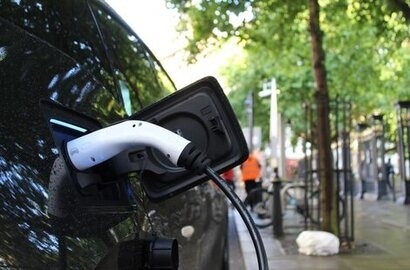
This comes as a delay on the ban of new petrol and diesel car sales threatens to slow the BEV transition further.
The data, analysed for Cornwall Insight and law firm Shoosmiths’ Electric Vehicle Country Attractiveness (EVCA) Index, shows that over the past year (July 22 – July 23) UK BEV sales growth was one of the slowest across the major European countries at only 31 percent. This is compared to the impressive 60.6 percent growth seen across the 27 European Union nations.
The EVCA, a quarterly ranking that charts the relative attractiveness of major European nations for investment in BEVs, found that ‘range anxiety’ and the lack of public charging infrastructure, with a ratio of 11.3 BEVs to every publicly accessible charge point in the UK, were contributing to slower growth.
Additionally, the index found cuts to BEV purchase incentives, including the de-facto closure of the subsidy scheme to help with the purchase of passenger BEVs, known as the PPlug-in Grant, as well as the continued delays to the rollout of rapid charging across the UK's motorways were slowing down BEV sales in the UK. Continued macroeconomic difficulties throughout the UK, with both high inflation and electricity prices, have only acted to compound these issues.
It is thought the Prime Minister’s announcement that the UK is to delay the ban on the sale of new petrol and diesel cars by five years (from 2030 to 2035) could further damage BEV sales growth. While still in alignment with many European nations, the watering down of BEV policy may lead to the UK’s transition losing some momentum and could potentially have an impact on both consumer and industry confidence.
“Despite strong progress, the UK could now be at risk of falling behind much of Europe in the transition to Electric Vehicles” said Jamie Maule, Research Analyst at Cornwall Insight. “While we are still seeing growth, the removal of incentives, infrastructure delays and wider policy uncertainty remain significant hurdles for EV expansion in the UK. The announcement by the Prime Minister to delay the ban of petrol and diesel vehicles has compounded the challenges casting uncertainty over the UK's EV market. This threatens to erode the country's momentum in shifting away from traditional fossil fuel cars. Only by reaffirming our commitment to EV infrastructure growth, bolstering incentives, and rekindling investor and consumer confidence, can the UK reclaim lost ground and position itself among the leading nations in Europe for EV adoption.”
The roll-back of petrol and diesel phase-out targets, slow growth and the addition of Sweden, put the UK two places lower in the EVCA than three months ago, as Norway retains the top spot. Despite the reduction in the ranking, the country remains in a strong position as only slim margins separate it from the upper echelons of the index, with the third and eighth-ranked countries split by only ~0.4 points.
Chris Pritchett, Energy and Infrastructure Partner at Shoosmiths, added that OEMS and chargepoint operators are investing billions in the electric transition and progress has been rapid, but the government’s screeching U-turn on policy threatens new investment into the UK’s wider green industry, whether it’s vehicle production, battery and semi-conductors, lithium extraction or facilities to deal with end-of-life batteries.
“More importantly, it frames net zero as a political wedge issue ahead of the election which is clearly (and unforgivably) aimed at dividing the consensus on meaningful climate action. I’m confident, though, that our business leaders in the sector will continue to set the pace on the EV transition, a rapidly converting public will join the ride, and this week’s frustrating setbacks will ultimately be nothing more than a bump in the road.”
For additional information:

